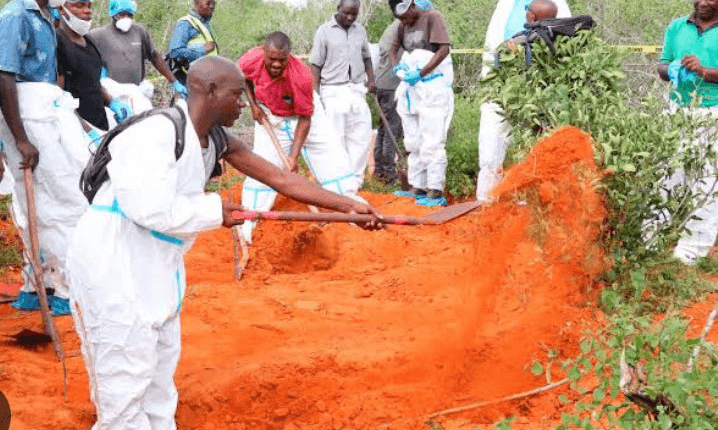Kenyan authorities are on the verge of releasing the remains of individuals associated with a doomsday starvation cult, marking a pivotal moment in a case that has deeply unsettled the nation and garnered global attention.
These bodies, the first to be returned to their families, have undergone nearly a year of meticulous DNA analysis for identification.
The discovery of shallow mass graves in April last year, nestled in a remote wilderness near the town of Malindi along the Indian Ocean, sent shockwaves throughout Kenya.
The grim find, encompassing hundreds of bodies, including children, unravelled the horrors of what has been termed the “Shakahola forest massacre,” allegedly orchestrated by self-proclaimed pastor Paul Nthenge Mackenzie. Mackenzie is accused of coaxing his followers into starvation as a means to “meet Jesus.”
Out of the 429 bodies exhumed between April and October, some have been positively identified through DNA profiling and are now slated for release to their respective families for burial.
Government autopsies revealed that while many perished due to starvation, others, including children, exhibited signs of asphyxiation, strangulation, or blunt force trauma.
Francis Wanje, a high school teacher who lost eight family members in the tragedy, shared his relief at identifying four of them, with plans underway for a funeral next month.
Initially spurred by the disappearance of his grandchildren, Wanje’s family led investigators to the vast forest, ultimately uncovering the mass graves.
However, he expressed frustration at the lack of government assistance in burial arrangements, highlighting the financial strain of organizing multiple funerals.


